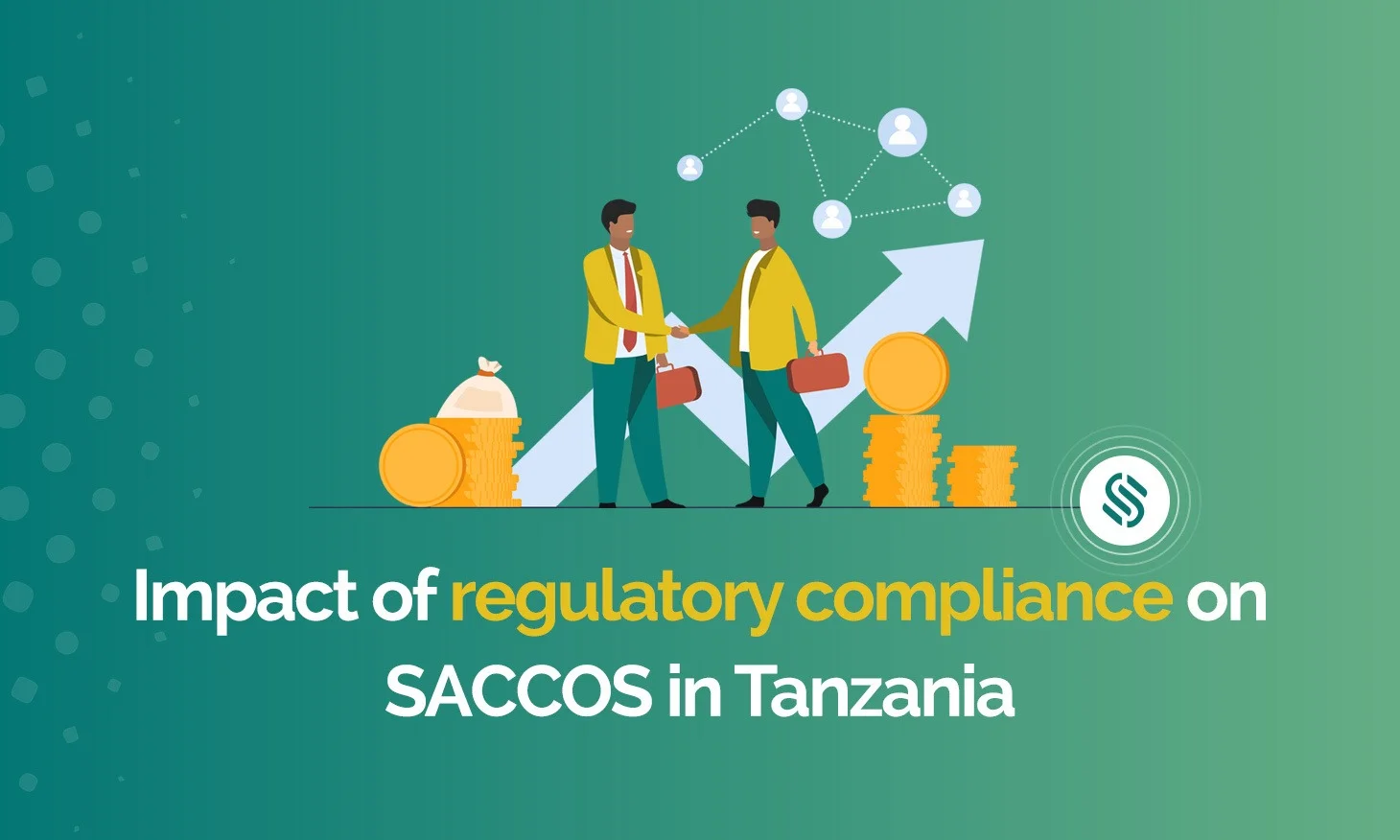Impact of regulatory compliance on SACCOs in Tanzania

The role of cooperative societies like SACCOs towards the unbanked has been increasing rapidly. While working in a democratic and open manner, they have been providing financial support to millions while contributing substantially to the GDP in countries like Tanzania and Kenya.
In the past years, SACCOs in Tanzania have been subjected to various regulations to address certain challenges and make the industry more organized. We have listed below some of the regulations that have been passed in Tanzania to regulate cooperatives.
- Cooperative Societies Act 1991
- Savings and Credit Cooperative Societies Regulation 2004
- Cooperative Societies Act 2013
- Microfinance Act 2018
As the financial market continues to grow, the need for such regulations increases to bring stability and security to the market. It is even more important in the informal sector where mostly cooperative societies operate.
During the latest event we partake in Tanzania, The Savings and Credit Cooperative Union League of Tanzania (SCCULT) discussed in-depth about taxation, auditing, regulations. They also talked about the rising importance and challenges for SACCOS to ensure regulatory compliance. Get all details about our event in Morogoro, Tanzania.
Impact of regulatory compliance
Such regulations come with various compliance-related challenges. According to several studies conducted in Tanzania and Kenya, there are some critical issues SACCOs have to face.
High cost of compliance – SACCOs have to make substantial changes in the way they operate to comply with the regulations. These changes may include various licenses and registrations which involve time and cost. It also impacts the financial performance of the SACCOs during the period. All this leads to a high cost of compliance.
Accounting requirements – New regulations obligate SACCOs to follow accounting standards and practices to bring financial transparency. Now SACCOs may or may not follow these practices before and might want to hire people for further help.
Human resource capacity constraints – Many times regulations require SACCOS to appoint supervisors and auditors to curb illegal activities. This adds to the cost of operations and other challenges to stay compliant.
Stringent financial requirements – SACCOs have to adopt several financial requirements related to KYC, liquidity, interest rates, penalties, and more to become compliant with the latest regulations. It may lead to an impact on the financial performance of SACCOS.
At Wakandi, we strive to bring digital solutions and technologies to SACCOS. We believe that technology can play a crucial role in helping SACCOs be compliant and provide better financial services. Read to know how Wakandi can help SACCOS become more digital and stay compliant or contact us below.


Comments